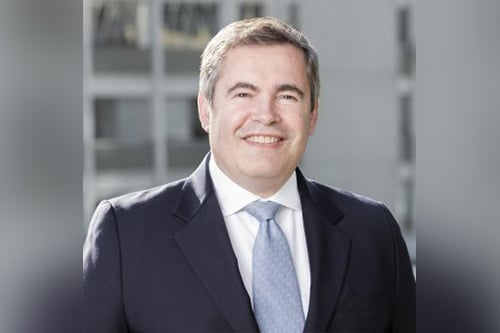Company has $1.1b AUM in SRI strategies and believes it can help the world while generating competitive returns

“I just don’t know if owning 0.2% of Suncor is any better than owning 2% of Suncor right now. What’s the difference?”
If that sounds like a bullish approach to ESG investing from Vancity Investment Management director Andrew Simpson, it belies the thoughtful approach of a firm which sets out to deliver returns while making a positive impact on the world.
Such statements risk sounding glib but Vancity has put down a marker and is 100% fossil fuel free, an approach Simpson believes makes the company unique with genuine value-add. He told WP: “It's true investing, it’s true shareholder engagement and it’s true proxy voting. We’re using our rights as shareholders to try to move things forward in a positive way.”
He cites the many low-carbon products in the market place and casts doubt on whether that is going far enough. Instead, the Vancouver firm is taking a stance, knowing it can diversify the risk of a sector through alternative opportunities.
The seven fossil fuel-free strategies it manages for iA Clarington - the iA Clarington Inhance SRI Funds - feature companies with a strong history of profitability who are also meeting ESG standards. Vancity is currently pushing $1.1 billion assets under management in SRI fossil fuel-free strategies.
Each company is also analysed using the UN Sustainable Development Goals criteria, which Simpson believes is an important way to measure the portfolio’s engagement with this area.
He explained: “When we're talking to clients, we can back up our view with some quantitative aspects on how we're providing return, whether that's from a carbon footprint basis on the portfolios, or whether that's looking at the dollars invested and seeing what type of sustainable revenues are being generated versus a general benchmark.”
Climate change awareness has increased among clients, as has interest in the gender gap and health, in particular antimicrobial resistance. People want their capital aligned with their values – an area that has specific challenges in Canada where the energy sector is so prominent.
Simpson told WP that Vancity takes a stakeholder approach to ESG analysis so clients feel comfortable with where they are committing capital.
This involves making sure customers and clients purchasing the goods and services, employees providing the labour and skill, and the communities affected by these firms have all been adequately consulted on the impact.
“When a company looks at all these factors and looks at ways to improve those relationships, you're going to have a company that has actually reduced the risk to their business model in our view. We think that adds value and shareholder return over time.”
This year’s financial system review from the Bank of Canada stated that, in their view, investors and consumer preferences are shifting towards lower-carbon sources of production. Simpson stressed that, if climate risk goals are not met, this will lead to stranded assets around the oil and gas industry.
He explained: “When you look at the TSX, we think Canada is pretty vulnerable to systemic risks from climate. Oil and gas sector is responsible for 27% of Canada's emissions and it makes up 14% of the Toronto Stock Exchange. So when you’re evaluating an oil and gas stock on a price to cash flow basis and looking at their net asset value, if there is a case where we move to a stage where 30% of their asset value has to be mandated to stay in the ground, well the valuation for those stocks is going to change.”
He added that, with risks more prevalent, Vancity believed this year was the year to go fossil fuel free because there are ample opportunities for diversification, especially in Canada which has firms leading the way in renewable energy. He cites his firm's global equity fund as having a carbon footprint 90% lower than the MSCI world benchmark, while its Canadian equity fund has a carbon footprint that is almost 60% lower than the TSX.
Learn more about the world’s top 10 wealth management firms by AUM
“We think these are pretty meaningful numbers and we’re still generating solid competitive performance.”



